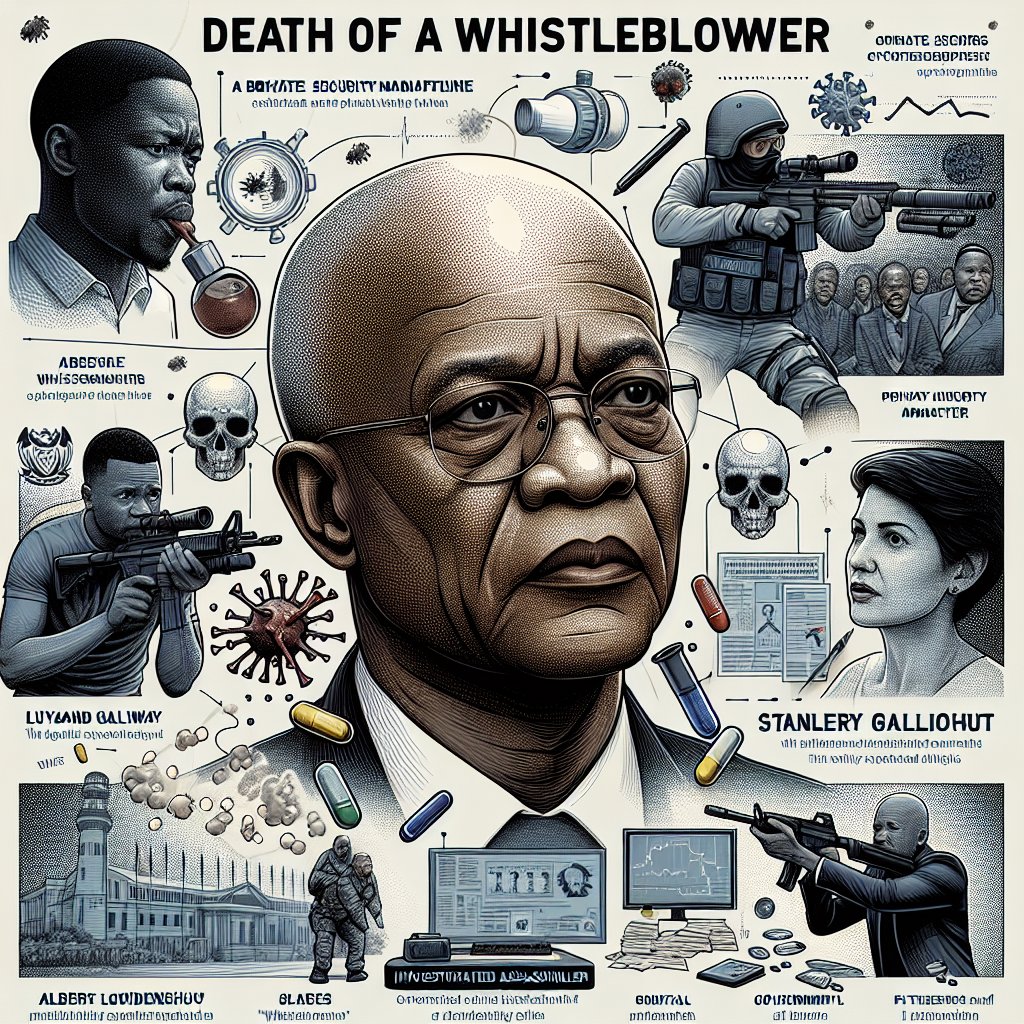Image created by AI
"Death of a Whistleblower" Shines at Johannesburg Film Festival and Echoes Calls for Justice
In the world of cinema, few films capture reality's urgent call like "Death of a Whistleblower," a film that has recently won acclaim at the Johannesburg Film Festival. This South African political thriller has astutely captured the complex drama that encompasses true bravery, and heart-wrenching losses experienced by those who dare to expose the truth.
The storyline follows Luyanda Masinda, played by the riveting Noxolo Dlamini, who is embroiled in a web of treachery following the murder of Stanley Galloway, portrayed by Rob van Vuuren. What initially appeared as a random and violent hijacking soon unravels into a meticulously orchestrated assassination, linked to Stanley’s secret dealings with military whistleblower Albert Loots, brought to life by Irshaad Ally.
The narrative threads a complex, multilayered timeline into an opus that highlights insidious activities involving biological warfare and the struggle of journalists to unearth the entrenched corruption behind them. Dlamini's compelling performance not only harks back to the formidable roles she has embraced in her career but also represents the unyielding spirit of those in pursuit of justice.
The film reverberates with the ethical dilemmas faced by whistleblowers—a theme eloquently explored in Tom Mueller’s "Crisis of Conscience." It invites viewers to weigh the heavy burden of state secrecy against the moral imperative of free speech, and the daunting power structures that regard whistleblowers as pariahs rather than the heroes they are.
As the story unfolds, private security magnate Martin Bezuidenhout (Deon Coetzee) and government official Thuli Yiza (S’Thandiwe Kgoroge) embody the antagonistic forces against truth-seekers, painting a grim picture of the hostility toward those disrupting the status quo.
The film, by weaving its strands through the socio-political fabric of South Africa's past and present, critically questions the efficacy of institutions like the Truth and Reconciliation Commission. It argues that they may have been insufficient in healing the wounds of the past, suggesting that true economic liberation has yet to be achieved for the majority.
Furthermore, it surfaces the nexus between the politics of state capture and private security firms, adeptly capturing the undercurrents of contemporary African reality. The film is dedicated to both past and present whistleblowers and investigative journalists, those who have paid a heavy price for their courage, as epitomized by the likes of Moss Phakoe, Sindiso Magaqa, and Babita Deokaran.
Director Ian Gabriel, alongside writers Louis Viljoen and Philip Roberts, and producers Joel Phiri and Tshepiso Sello, presents a tapestry of storytelling that avoids gimmickry and instead relies on strong performances, crisp cinematography, and poignant scripting to weave this enthralling yarn.
While the film succeeds in squeezing the essence of South African politics and global intrigue into an accessible format, it may overwhelm viewers with its intricate portrayal of complex political landscapes. Nevertheless, it challenges viewers to deeper understanding and engagement, leaving open the question of cinema's role in fostering critical thought.
For those who can weather the film’s rich and thought-provoking content, "Death of a Whistleblower" is more than just a film. It is an invitation to glimpse the heroes who dare to confront the darkness and, in doing so, reflect upon our own stance within the ongoing fight against corruption and tyranny.
